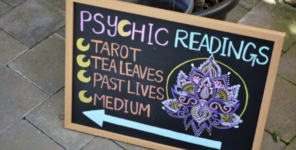Psychic Scams Can Constitute the Criminal Offence of Fraud

ScamWatch, a division of the Australian Competition and Consumer Commission (ACCC), has announced that ‘psychic scams’ are on the rise, with a reported $555,240 extorted from Australians in 2022.
Individuals purporting to be psychics or clairvoyants will often prey on vulnerable members of the community ,including the elderly and people living with mental illness, utilising a belief in mysterious powers to defraud people out of cash.
Here’s what you need to know.
How Do Psychic Scams Work?
According to ScamWatch there are a variety of psychic scams operating Australia, all involving a ‘psychic’ or ‘clairvoyant’ approaching a person via post, email or phone, promising winning lottery numbers, a lucky charm, the removal of a curse or jinx, or ongoing protection.
The scammer promises to provide the person with psychic services for a fee or with a lucky charm or other item to ward off bad magic. This is all a facade for the scammer to convince the target to send money.
Once a person has been scammed once, they will often be put on a victim list to be approached by other scammers in the future.
The Offence of Fraud in NSW
Section 192E of the Crimes Act 1900 (NSW) outlines the offence of fraud, which carries a maximum penalty of 10 years imprisonment.
To be found guilty of this offence, prosecutors must prove beyond reasonable doubt that a person, by any deception, dishonestly:
- Obtained property belonging to another, or
- Obtained any financial advantage from another, or
- Caused any financial disadvantage to another.
Section 192B of the Act defines ‘deception’ as any intentional or reckless deception, by words or other conduct, as to fact or as to law, including a deception as to the intentions of the person using the deception or any other person, or conduct by a person that causes a computer, a machine or any electronic device to make a response that the person is not authorised to cause it to make.
A deception will be ‘dishonest’ if it is dishonest to the standards of ordinary people, and is known by the defendant to be dishonest to to this standard.






